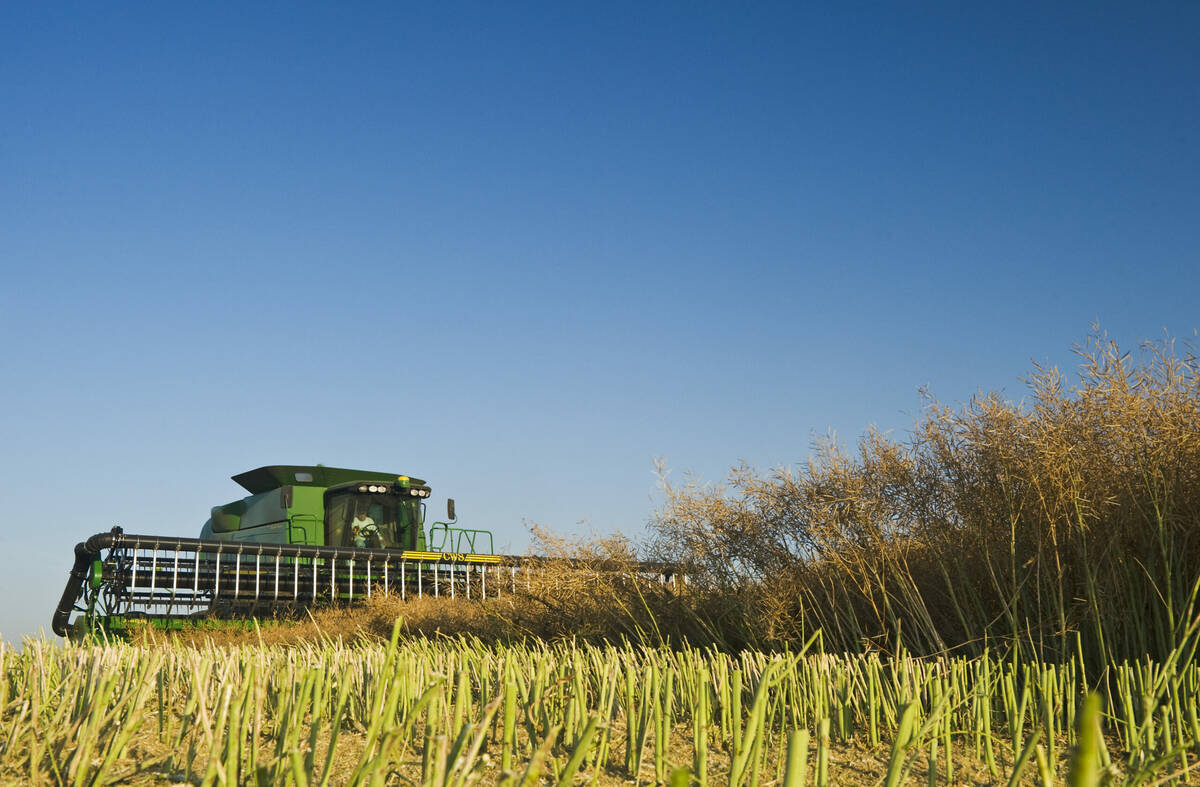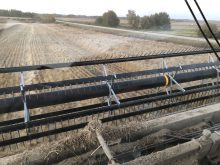Two years ago, when China severely curtailed imports of Canadian canola by suspending the licences of Canada’s two largest grain companies, most saw a disaster about to unfold.
The ginned-up claim was around the quality of Canadian canola seed, specifically pests like weed seeds and plant diseases such as blackleg. The Canadian Food Inspection Agency, it should be noted, does not agree with the Chinese take on the situation.
Read Also

Canola growers face rising verticillium stripe threat with few options
After a severe 2025 outbreak, verticillium stripe is drawing attention at Prairie agronomy meetings as researchers warn of uncertain yield impacts and slow resistance progress.
More likely, many said at the time, the move was really about pulling a few economic levers to punish Canada for arresting telecom executive — and daughter of one of the ruling oligarchs — Meng Wanzhou under our treaty obligation with the U.S.
Yet, somehow, the expected disaster failed to play out. As farmers saw prices rise for months on end, and even some record prices this winter, albeit with scant supply to fill the demand, they might have wished for more crises like this.
First, canola shipments didn’t halt completely, they simply slowed, as other grain companies that weren’t affected continued to ship. The Canola Council of Canada said they dropped significantly — by somewhere between 50 and 70 per cent. But that implies that 30 to 50 per cent of Canada’s exports to China continue to flow.
It’s certainly a less than ideal situation, and there have no doubt been economic losses for farmers. A recent study commissioned by the council pegs the cost at “up to $1.3 billion” as our Allan Dawson recently reported. But even so, high prices have managed to disguise those losses and blunt the sting that might otherwise have been felt.
But then, added to the amount of canola that’s still entering China, is the question of so-called ‘back door’ shipments.
Last summer the Reuters news service reported that industrious European and Arab oilseed crushers were buying canola — some of it almost certainly produced in Canada — and crushing it and exporting that oil to China, whose appetite for the product remained ravenous.
As they reported, shipments to China might have dropped, but total canola exports had actually — as of that date — jumped nine per cent. Sales to France had tripled and shipments to the United Arab Emirates doubled.
Their report went on to quote one source who described canola oil as being “like gold now.”
“Profits are extravagant. Anyone who has the resources to import (canola oil) will definitely buy,” the source added.
As any customs officer who’s ever chased a smuggler will tell you, the funny thing is that trade, like water finding its own level, will always find a way.
Make smokes too expensive in downtown Montreal? Mysterious cross-border trade routes will spring up. Eliminate those? On-reserve manufacturing facilities will appear overnight.
Leave a Panamax-sized legal loophole in the canola ban? Suddenly crushed canola oil will be appearing at every market stall in Shanghai and Beijing.
It would appear the opportunities have caught the eye of our own domestic crushers — not that they’d exactly been asleep at the switch.
The Canadian Oilseed Processors Association (COPA) represents the firms that operate Canada’s 14 crushing plants, and figures from them are telling, showing domestic crushing moving ahead over the long haul.
From 2010-19, canola crushing increased 69 per cent, from 5.7 million to 9.6 million tonnes, its website touts. Over the same period, canola oil exports grew by 43 per cent, from 2.2 million tonnes to 3.2 million tonnes. And canola meal exports leapt by 90 per cent, from 2.5 million tonnes to 4.7 million tonnes.
The latest figures from the canola council show just over 10.1 million tonnes of canola were crushed in Canada, on total canola production of 20.7 million tonnes. Doing the math, that translates into just under 49 per cent of last year’s harvest being processed here in Canada.
And one of the companies hardest hit by the Chinese ban — Manitoba’s own Richardson International — is about to put the domestic crush sector across a notable milestone. A recently announced expansion plan for the company’s Yorkton, Saskatchewan crush plant is going to double its capacity, and give the sector the capacity to crush more than half the crop here at home.
The plant will have the capacity to crush around 10 per cent of the Canadian canola crop in a single location, and it is a rational response from a Canadian company in a world of trade barriers dressed up as phytosanitary concerns.
If China wants to claim there’s blackleg in our canola because it is upset that we adhere to rule of law, it can buy the canola in a further processed form that totally eliminates its worries, seems to be the Richardson response.
One has to look at that situation unfolding and wonder if a country famous for playing the long game hasn’t overplayed its hand.
















